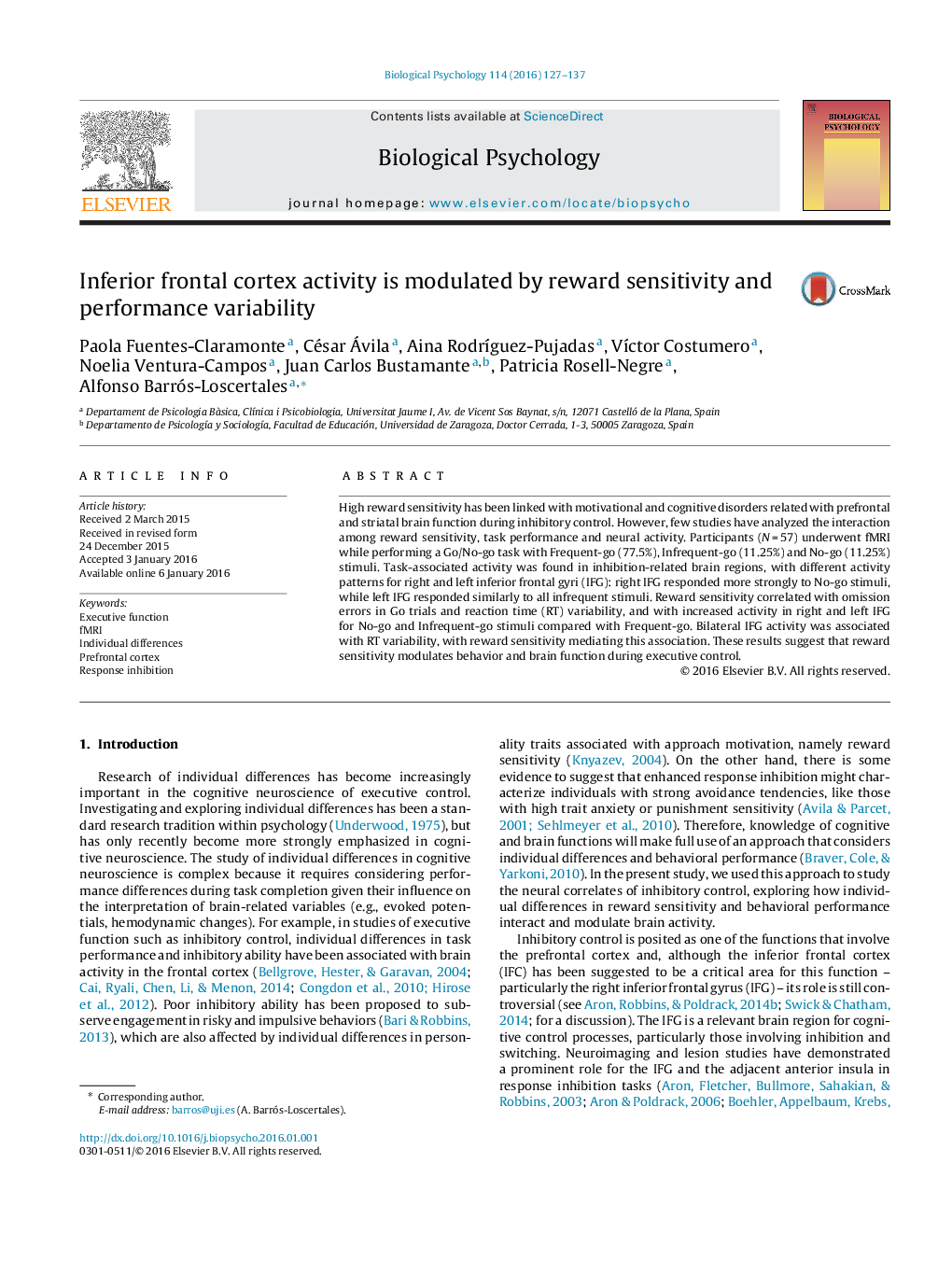| Article ID | Journal | Published Year | Pages | File Type |
|---|---|---|---|---|
| 7278517 | Biological Psychology | 2016 | 11 Pages |
Abstract
High reward sensitivity has been linked with motivational and cognitive disorders related with prefrontal and striatal brain function during inhibitory control. However, few studies have analyzed the interaction among reward sensitivity, task performance and neural activity. Participants (NÂ =Â 57) underwent fMRI while performing a Go/No-go task with Frequent-go (77.5%), Infrequent-go (11.25%) and No-go (11.25%) stimuli. Task-associated activity was found in inhibition-related brain regions, with different activity patterns for right and left inferior frontal gyri (IFG): right IFG responded more strongly to No-go stimuli, while left IFG responded similarly to all infrequent stimuli. Reward sensitivity correlated with omission errors in Go trials and reaction time (RT) variability, and with increased activity in right and left IFG for No-go and Infrequent-go stimuli compared with Frequent-go. Bilateral IFG activity was associated with RT variability, with reward sensitivity mediating this association. These results suggest that reward sensitivity modulates behavior and brain function during executive control.
Related Topics
Life Sciences
Neuroscience
Behavioral Neuroscience
Authors
Paola Fuentes-Claramonte, César Ávila, Aina RodrÃguez-Pujadas, VÃctor Costumero, Noelia Ventura-Campos, Juan Carlos Bustamante, Patricia Rosell-Negre, Alfonso Barrós-Loscertales,
